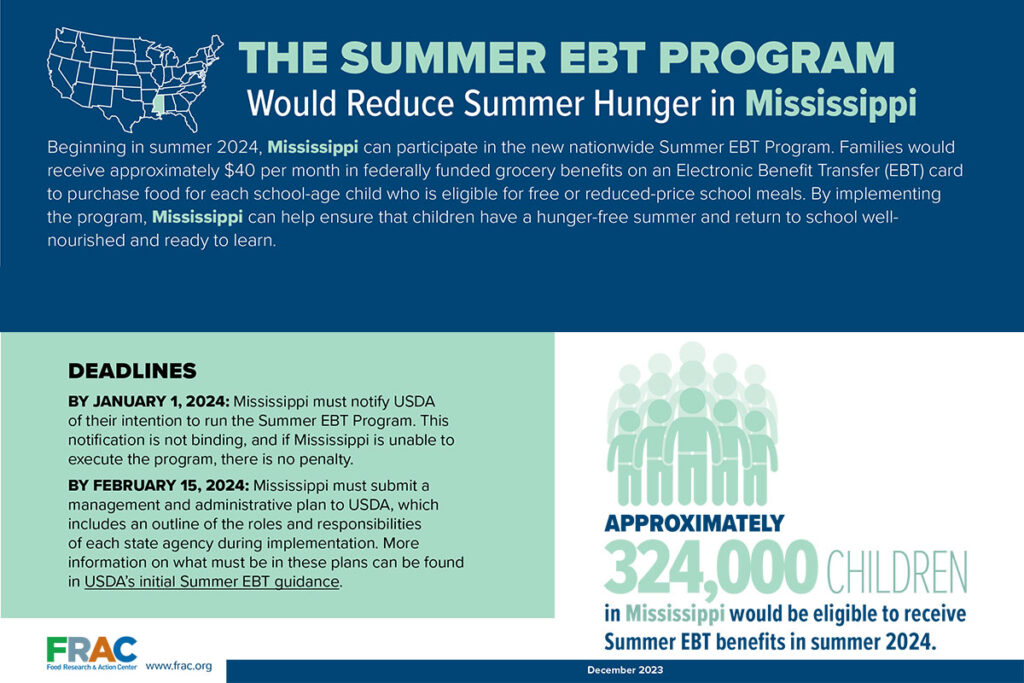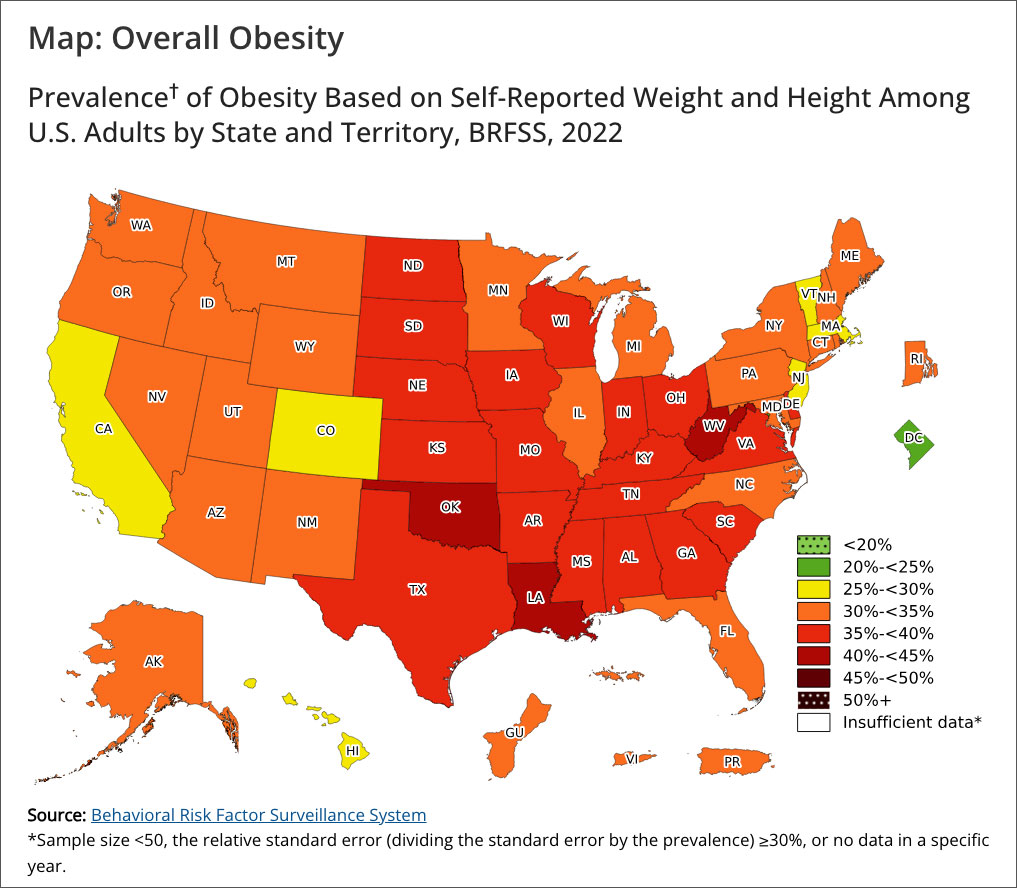As we approach the summer of 2024, a groundbreaking initiative is set to transform the lives of millions of children across America. The Summer Electronic Benefit Transfer Program for children is making a significant leap from its demonstration projects to become a permanent fixture in our efforts to combat child hunger and improve diet quality.
With grocery-buying benefits reaching low-income families, this summer program aims to provide a robust foundation for a healthier future, granting families $40 per eligible child per month for three months through pre-loaded cards. In synergy with existing nutrition assistance programs, the Summer EBT is poised to play a pivotal role in ensuring our children have consistent access to essential nutrition when schools are closed.
However, some states, including Mississippi, are rejecting this lofty initiative that could benefit more than 29 million children across the country.
Mississippi’s Fight Against Hunger
Opting out of the Summer EBT will worsen food insecurity in Mississippi, a state adjudged to have the worst hunger problem across the U.S. Food insecurity refers to the lack of consistent access to enough nutritious food for an active, healthy life. Various factors influence this complex issue such as economic conditions, living costs, employment and systemic inequalities. Individuals or households experiencing food insecurity may struggle to afford or access sufficient and healthy food, leading to compromised nutrition and potential health consequences. This condition can affect people from diverse backgrounds, including those facing poverty, unemployment, high housing costs, chronic health conditions or systemic discrimination.

Food insecurity goes far beyond the conventional idea of hunger. It encompasses a broader range of challenges related to food access and affordability. In America, for example, the issue of food insecurity extends beyond those formally classified as such, encompassing millions who seek assistance from the charitable food sector. The repercussions of food insecurity span physical and mental health, well-being, and educational and occupational challenges, highlighting the urgency of addressing this pervasive issue.
Opting out of the Summer EBT will degrade diet quality, especially among school-age children in Mississippi who are the potential beneficiaries of the program. A quality diet plays a significant role in providing essential nutrients that support cognitive function and overall well-being, which improves education outcomes.
Adequate intake of vitamins, minerals and other nutrients positively influences brain development, concentration and memory. Proper nutrition also reduces school absenteeism due to illness and promotes consistent attendance in school, contributing to better physical health. Additionally, a well-balanced diet supports overall energy levels, enabling students to actively engage in learning and participate in academic activities.
Childhood Obesity Is a Growing Concern
Some people argue that Mississippi has other welfare feeding programs, including the Summer Food Service Program, dismissing insinuations that children will not get the support they need if the state does not participate in the program.
“Mississippi already has long-standing programs in place that help feed children during the summer months,” Shelby Wilcher, press secretary to Gov. Tate Reeves, said in response to U.S. Rep. Bennie Thompson’s rebuke. However, the truth is that those programs are really not enough. Otherwise, why would Mississippi have the highest or one of the highest food insecurity and obesity rates in the country?
The U.S. Department of Agriculture found that food insecurity is a big problem in the nation, with over 44 million people—including 13 million children—experiencing it annually. But in Mississippi, the situation is even scarier, with almost 1 in 6 Mississippians, representing about 480,600 people, not having enough to eat; more than 1 in 5 children, representing 18.8%, going to bed hungry most nights; and 1 in 8 Mississippi seniors, representing 12.6%, experiencing regular food shortfalls.
As if that weren’t enough, Mississippi is also grappling with the issue of poor nutrition, which often leads to obesity. Childhood obesity across the nation is a growing concern, with around 19.7% of children aged 2 to 19 classified as obese. This condition not only poses risks for adult obesity and metabolic issues, but it also presents health, social and psychological challenges during childhood.
Despite the broad societal impact, minorities, particularly Hispanics and African Americans, bear a disproportionate burden. Mississippi, ranking fourth highest in obesity prevalence in the U.S., faces heightened challenges, particularly in the Mississippi Delta region, with a significant African American population and elevated poverty rates.

Mississippi has opted out of the Summer EBT program for 2024, citing a lack of resources, including workforce capacity and funding. This decision raises concerns, especially given Mississippi’s high food-insecurity rates and obesity prevalence. While the state already has a Summer Food Service Program, the Summer EBT initiative, designed to address childhood hunger, provides an additional avenue for families. With an initial $40 million allocated specifically for the Summer EBT program, this federally funded program aims to benefit more than 300,000 eligible children in Mississippi.
Mississippi’s exclusion underscores the need for reconsideration and collective efforts to ensure no child goes without food during the summer months. Otherwise, I will join Rep. Bennie Thompson in saying, “Shame on Tate Reeves for refusing essential food assistance for eligible children during the summer.”
This MFP Voices essay does not necessarily represent the views of the Mississippi Free Press, its staff or board members. To submit an opinion for the MFP Voices section, send up to 1,200 words and sources fact-checking the included information to azia@mississippifreepress.org. We welcome a wide variety of viewpoints.






